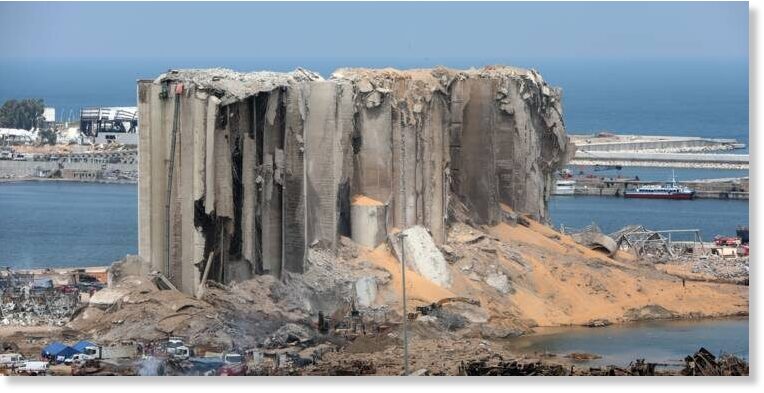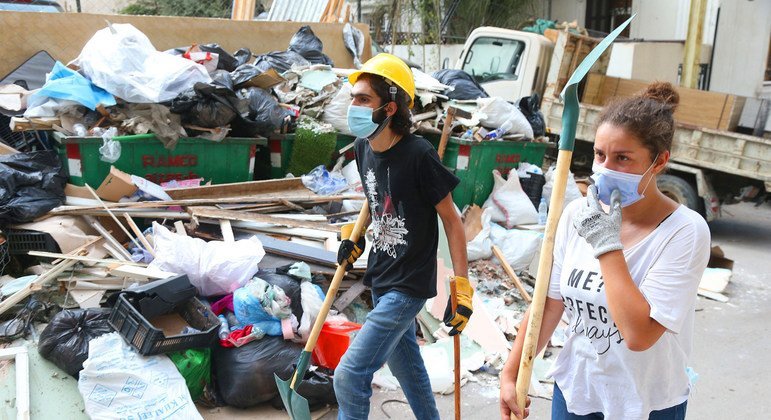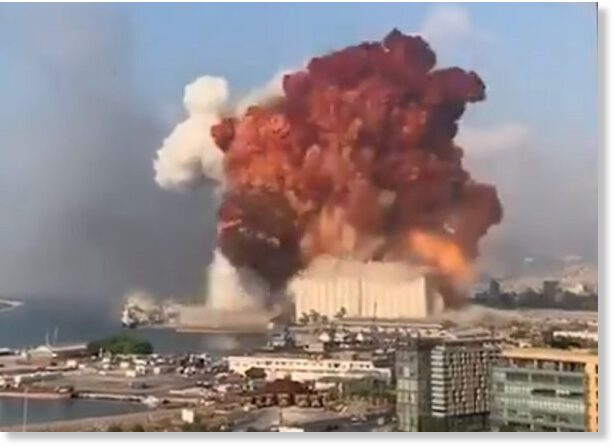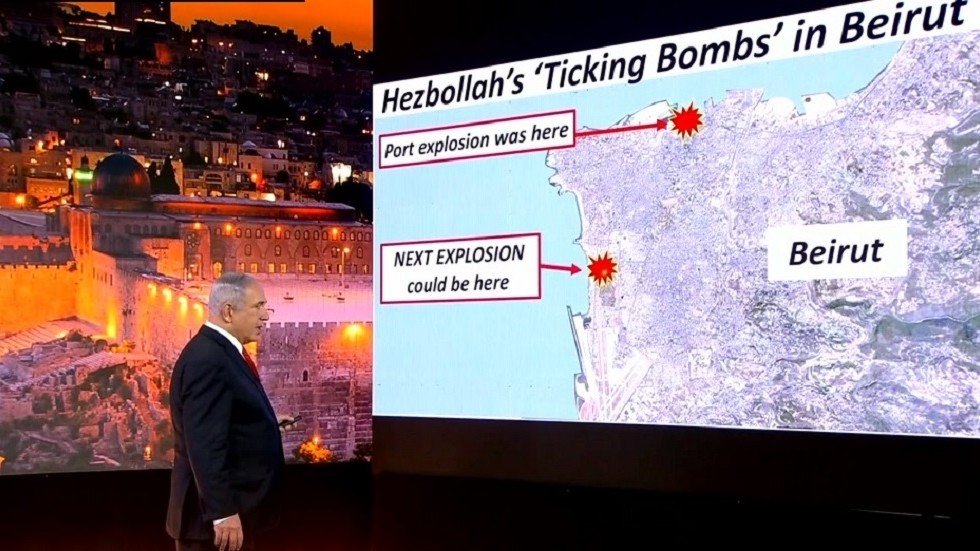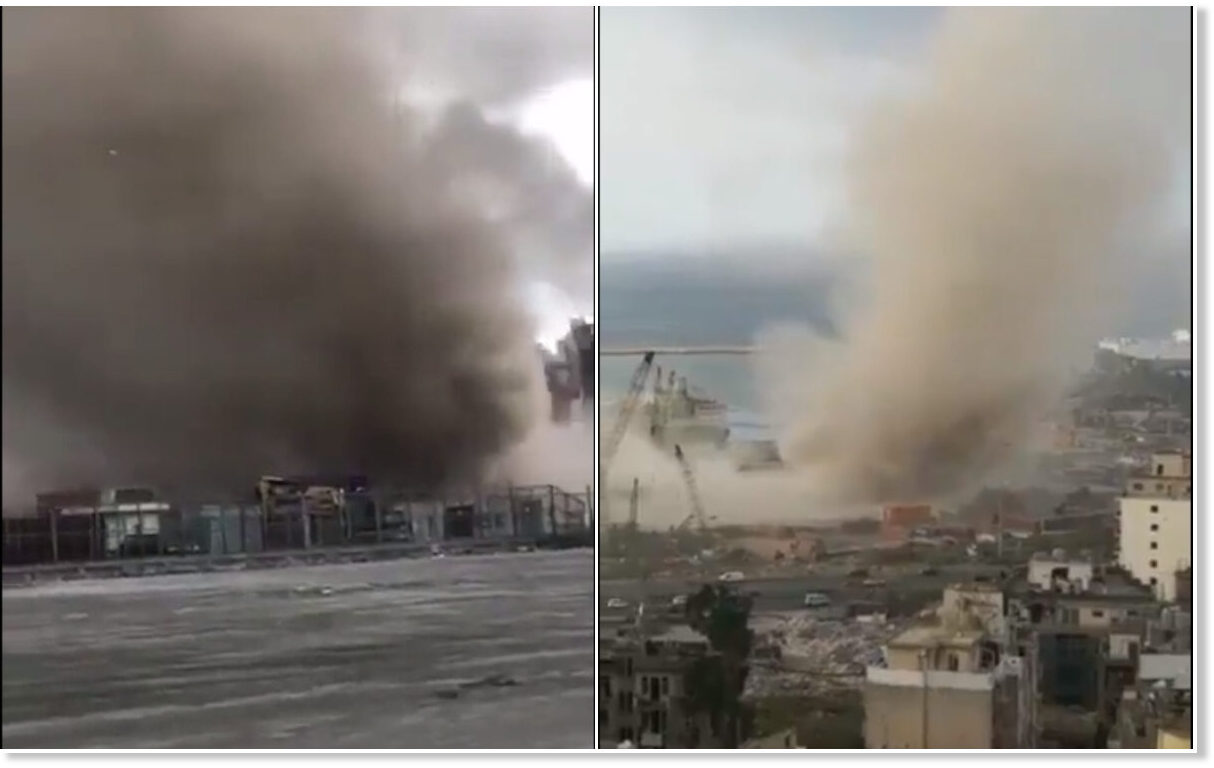Hello, I am translating a text taken over by sign of time in French, I will translate it for you and very close to what I know and read
Parfois, le cycle de l'information et le cycle géopolitique se séparent tout simplement. C'est le cas ici, avec la dévastation du port de Beyrouth. Ce qui s'est passé là-bas est destiné à constituer un événement géopolitique majeur - quelle que...

fr.sott.net
Sometimes the information cycle and the geopolitical cycle simply separate. This is the case here, with the devastation of the port of Beirut. What happened there is destined to be a major geopolitical event - however its aftermath is expected to reverberate and shape the future.
There are good historical reasons for this separation: The first (which explains the regional silence) is that we have not yet had the results of the forensic science. Yes, satellite photos abound, but terrain detail is not. Not forensics.
The mainstream media are in a hurry to "shape" their story of the explosion before the verdict of the Special Tribunal on the death of Rafic Hariri (scheduled for August 18), and which is expected to indict Hezbollah members. Yet many questions remain unanswered. It will take a few more days before these analyzes on the site are available. They will of course be contested, and may not resolve anything.
Faced with this silence, while awaiting the opinion of the main actors, the Western and Israeli media are making the headlines by publishing "everything you need to know" and their "recaps" from Beirut. However, the situation is far from being resolved. Other questions arise over the days. And the region has a collective memory of these geopolitical inflection points.
The "popular" uprising of 1953 against Prime Minister Mossadegh, which turned out to be an MI6 / CIA coup and which - subsequently - was to usher in the game-changing Iranian Revolution; the assassination of Rafic Hariri in 2005, which led Syria to leave Lebanon - and the fact that calls (of unknown content) made by cell phone "families" were made through poorly performing computers - were institutionalized to determine the guilt of Hezbollah and, at the same time, the designation of the movement as terrorist. (Hezbollah has, from the start, contested the Western / international narrative of Hariri's assassination).
Yet the truth is that what happened to Rafik Hariri still remains obscured in the fog of partisan warfare (as the fate of Beirut's devastation may be this week). In Syria, the history of chemical weapons for Douma became another "turning point", amid the roar of American Tomahawk missiles (Assad having become a chemical weapons pariah). Yet, OPCW documents from the last few days show that chemical weapons were just an invention.
Yes, the region has good reason to take a break. On the one hand, we did not have the results of the expertises on the explosion of the port, and on the other hand, we have Trump's assertion - which he subsequently reiterated - that his military generals said that what happened in Beirut was "an attack" (a bomb). The President did not "speculate" that this was an attack. He made it clear that his generals told him so.
This declaration cannot be entirely taken out of the calculation by airbrushing. And one also cannot ignore the fact that the oddly unified "shape" and mushroom effect of the main Beirut explosion looks like a similar "unexplained explosion" a few months ago in Syria. And finally, there is the question: Were there three explosions?
So we're waiting for what is likely to be a perfectly binary outcome. Either the devastation is the result of culpable neglect by port security authorities, or it is a daring attempt to "explode" current regional dynamics, reshape narratives and radically overhaul geopolitics. Both are possible.
What to do then? The Israeli narrative is that the destruction of Beirut will provoke an uprising of the Lebanese population against Hezbollah, and will demand that its ammunition be removed from population centers. (Israel would of course welcome the visibility this would bring to Hezbollah's arsenals). Scheduling an emergency United Nations Security Council meeting for Monday, and calls to place Lebanon under international surveillance, suggest that Western states will seek to use the crisis to weaken and further coerce Hezbollah.
The March 14 Alliance will seek to capitalize on what has happened to mobilize the Lebanese against Hezbollah, but this is unlikely to have the resonance that others might anticipate. The port of Beirut is historically a Sunni heritage. It does not have a unique security structure, and they are not Hezbollah's friends. The port is also open for inspection by UNIFIL. If we had to characterize the management of the installation, it would seem that it is a management of dilapidation and rampant venality. It is possible that this culpable negligence, which led to an accident, is responsible, in whole or in part, for what happened
If so, it would appear that the public anger is focused more on the corrupt Za'im (the system's "capos" who have ravaged the economic structure for their own enrichment for decades), than on Hezbollah. Indeed, the current government will struggle to survive - even if it was not in power when negligence may have occurred. This responsibility lies with the old guard.
If it turned out that "Trump" was telling the truth, and what happened was some kind of attack, it wouldn't be difficult to answer the question cui bono? Israeli journalists are already celebrating the auspicious timing of the event: that "Lebanon [now] will implode", and that the "shock waves" of the explosion will disturb Hezbollah for a long time to come, but especially before the report of the Special Tribunal.
An Israeli journalist added that the explosion "in Lebanon's main port sends a warning message to Iran as well, which said only about a month ago that it would deploy ships and tankers to Lebanon" . Israel and the United States in particular fear that these ships, if they arrive in Lebanon, will set up a regular supply line not only with oil, flour and medicine, but also weapons, ammunition and missile parts ”
Much therefore depends on forensics: Was this a bold “false flag” initiative to restore the strategic status quo (of the kind Israel once boasted about), by hiding and using a publicly known vulnerability in the Port of Beirut - the storage of 2,700 kg of ammonium nitrate - in order to destroy Hezbollah's strategic position in the region, and to move policy in an unexpected new direction (favorable to Israel)?
Or yet another example of the weariness and venality of the Lebanese elite, who only care about themselves and not the well-being of their people?
If the first example and events portend another attempt to crush Hezbollah, the new regional paradigm may well be explosive.
I remind you that Hariri father was killed, near the port on a bridge connecting the port and the airport of Beirut, during his career, he has repeatedly put many business people in ruins by his embezzlement. The investigation vilified by both the French authorities at the time and the Hariri government to hand this over to a puppet court, whose goal was to point out Hezbollah as sole responsible
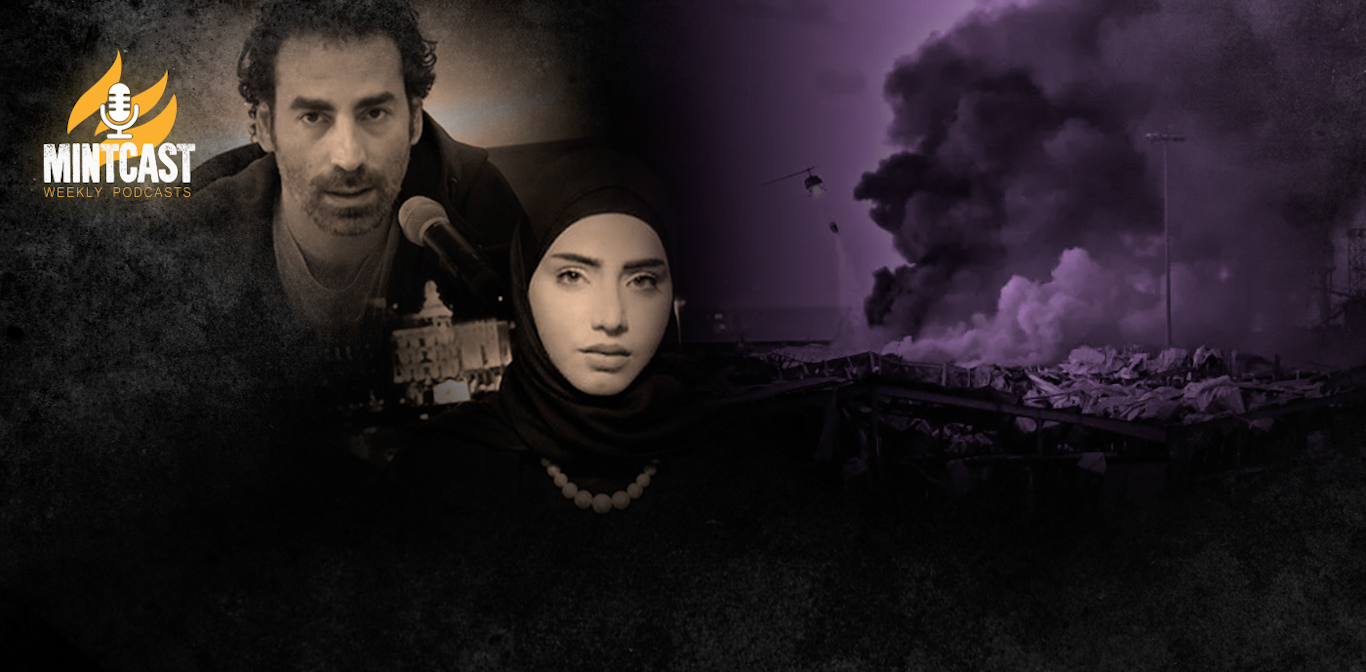
 www.mintpressnews.com
www.mintpressnews.com

 www.mintpressnews.com
www.mintpressnews.com

